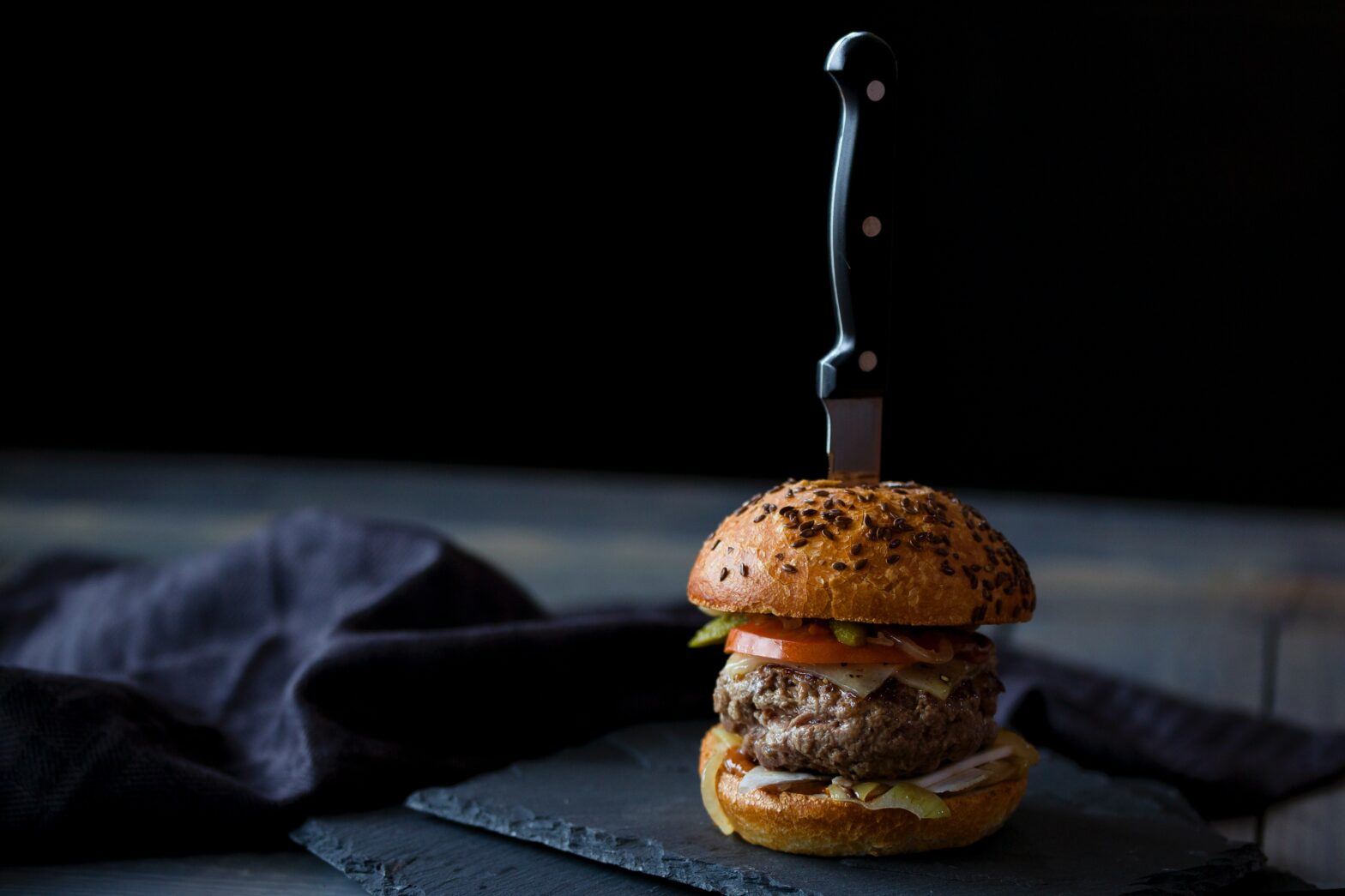30 June 2022
Food Glorious Food
By Paul Branch

So sang Lionel Bart’s emaciated orphans, having to live with too many other children and not enough food. Their paean to one of life’s essentials, in such short supply in the Victorian era, makes one wonder what little Oliver’s creator would have made of today’s bloated population, having to eat too much of the wrong kind of food and putting at risk their own well-being and health. Our meat-heavy fast food culture is of course the culprit, impacting climate change as well as health, and working hand in hand with our modern version of social deprivation. These are obviously examples of the kind of priorities that our hard-working government insists they should be given the time and the space to be getting on with, without trivial distractions. And indeed this is what has happened, including also a fine opportunity to demonstrate some of the more tangible benefits of Brexit while they’re about it.
The vehicle for this was the recent publication of the National Food Strategy from the Department for Environment, Food and Rural Affairs. Undoubtedly the decision to evolve such a strategy was a welcome initiative on the part of the government, given that how we produce food and what we eat are ever-present considerations in a changing environment. Not forgetting also that we have left behind the EU’s hated Common Agricultural Policy and now need to determine what replaces this erstwhile cornerstone of Defra’s policies. The new strategy has come about thanks to another piece of thoughtful governmental foresight: the appointment in 2018 of Henry Dimbleby as the lead non-executive board member to Defra, with the commission to look at our entire food chain, at home and abroad, from field to fork, including the production, marketing, processing, sale and purchase of food as well as consumer practice, resources and the institutions involved. Quite an agenda, but Dimbleby has been widely praised as the right person to lead this given his considerable experience in the food industry, his expertise as owner of a chain of restaurants, and his prior involvement in the government’s school food plan. The family name of his parents David and Jocelyn, and his late lamented grandfather the eminent journalist and broadcaster Richard Dimbleby, only add lustre to his credentials.
Dimbleby’s work has been delivered in two parts. His first report, in 2020, made two recommendations encompassing critical elements of an overall food strategy: that disadvantaged children not be left behind because of poor diet; and that we need to decide what kind of trading nation we want to be, given our new-found sovereignty and freedom within the global market place. There would have been a third recommendation had it not already been announced by the government: to limit advertising and promotion of unhealthy foods, but here again the government did a really good job, beating Dimbleby to the punch which he himself acknowledged with admiration. The general response to Dimbleby’s recommendations was very positive, coupled with a seeming sigh of relief that, at last, the topic was being addressed in a credible manner by someone who knew what he was doing.
The response from Defra was not quite the full endorsement Dimbleby and his team had hoped for, but certainly still good enough to be getting on with: entitlement to free school meals would be extended in 2021 (recall also the intervention on this matter by footballer Marcus Rashford MBE), but not for pupils of all ages. Neither was there support for preferential tariffs on food meeting core standards, but Dimbleby was only half-way through his work, so hopes for the advancement of his next set of key objectives were still high.
The second part of Dimbleby’s report was published in 2021 with further emphasis on children’s diet as well as climate change. He proposed a tax on sugar and salt to escape the junk food cycle (thus protecting the NHS as well as children’s future well-being), and reducing diet-related inequality by extending eligibility for free school meals and other food funding activities for a further three years. To make best use of our precious farming land, Dimbleby recommended a guaranteed government budget for agricultural payments up to 2029, and beyond if need be, as support to farmers as they transition from the EU’s CAP to more sustainable land use. In addition he proposed a framework for use of rural land, minimum standards for trade in the food industry, and how to protect those standards. Finally there were recommendations aimed at creating a long-term shift in our food culture, including a significant investment to strengthen government-based procurements (such as in schools and hospitals), and legislation aimed at underpinning the achievement of long-term targets in diet improvement.
Again the recommendations and the overall tenor of Dimbleby’s report were highly praised, albeit with reservations by food producers that sugar and salt taxes, unsurprisingly, would not achieve the aim of improving children’s diet, and that the best solution would be to improve their (and their parents’) living conditions. This was a fine sentiment from the industry that recognised some form of government intervention and financial support were essential. Defra’s response was eagerly awaited while they studied Dimbleby’s document in preparation for the release of the national food strategy. Expectations were dampened somewhat by a leaked draft version of their strategy which reportedly contained as a leading element the encouragement of greater consumption of wild venison … maybe not such a bad idea for those living in the farming shires but not one to get the juices flowing in most electoral constituencies. That suggestion was quickly and quietly removed from the final strategy unveiled in mid June.
The expectation was that Defra would recommend clear, time-bound actions in the form of outline legislation designed to implement the changes on which Dimbleby’s own recommendations were based. These would encompass the main points noted above regarding extending free school meals, taxes on sugar and salt (or at least an alternative to improve eating habits), reducing dependency on meat consumption, a new farming policy based on environmental land management schemes (to replace the EU CAP), and minimum standards for food imports against which our farmers would need to compete. Those holding their breath to learn the real outcome can exhale now, and maybe look away to the clunk of cans being kicked into the long green fertile grass.
It seems that the priorities this government believes are of great interest to the public do not include the junk food cycle feeding an epidemic of obesity and diabetes; nor the need for a long-term agricultural and food policy to help combat climate change. These are obviously not easy issues to handle, but they need addressing in terms of substance and not political sound bites which serve only to obfuscate, delay and avoid action. Defra’s recommendations rely on a dependence on market forces to protect our food and farming future, and on consumer choice to take us down the easy path of self-regulation. Henry Dimbleby is not impressed by this apparent lack of understanding leading to a lack of governmental strategy, or even properly planning for one. When the pandemic was reaching its height and Boris Johnson himself succumbed to a near-fatal dose of Covid, he vowed to wage a “War on fat” ….. let’s hope our Prime Minister will soon reflect on that, and that his food for thought will soon cause Defra to eat their own weasel words.


